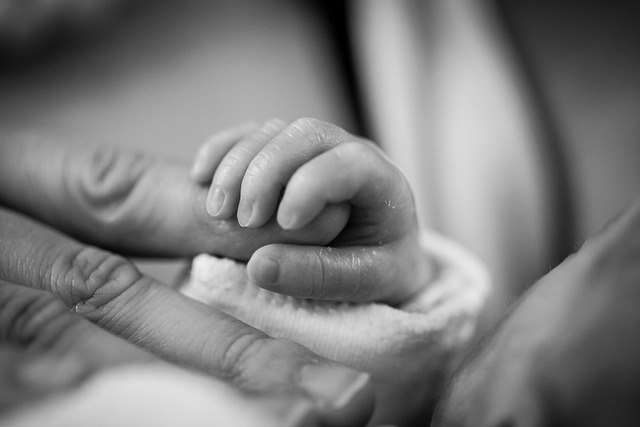When an individual needs a birth certificate translated for inheritance purposes in the UK, it's crucial to engage with professional 'birth certificate translation UK' services that offer certified translators accredited by bodies like the ITI or ATC. These experts ensure the translation is both accurate and legally compliant, capturing all necessary details from the original document. The translated birth certificate must then be authenticated with a notarized statement or an apostille if required for international recognition. This process is essential for heirs to establish legal identity and inheritance rights, particularly when dealing with assets or property in the UK or presenting documents abroad. By adhering to these standards, translations will be accepted by UK authorities and foreign embassies without issue, thereby facilitating a smoother resolution to any inheritance disputes that may arise from a lack of valid documentation.
navigating the complexities of inheritance matters can be challenging, especially when legal documents are in a different language. This article delves into the critical role of birth certificate translations within UK legal proceedings, particularly in inheritance cases. Understanding the necessity of precise and official translations is paramount to resolving these matters efficiently. We will guide you through identifying reliable translation services, navigating legal requirements, and ensuring your birth certificate translation UK meets all necessary standards. From the intricacies of document authentication to practical tips for a successful translation process, this comprehensive overview ensures that your inheritance claims are backed by accurate and legal documentation.
- Understanding the Necessity of Birth Certificate Translation in Inheritance Matters
- The Role of Official Birth Certificate Translations in UK Legal Proceedings
- Identifying Accredited Translation Services for Birth Certificates in the UK
- Navigating the Legal Requirements for Birth Certificate Translations in Inheritance Cases
- Key Considerations When Choosing a Birth Certificate Translation Service
- The Process of Translating a Birth Certificate for Inheritance Purposes in the UK
- Document Authentication and Apostille for Birth Certificates in UK Inheritance Matters
- Case Studies: Successful Birth Certificate Translations Resolving Inheritance Issues
- Tips for Ensuring Accurate and Legal Birth Certificate Translations for Inheritance Claims in the UK
Understanding the Necessity of Birth Certificate Translation in Inheritance Matters

When an individual passes away and their assets are to be distributed according to their will, birth certificate translations play a pivotal role in UK inheritance matters, especially when beneficiaries are non-UK nationals. The legal framework governing inheritance within the UK necessitates precise documentation to validate the lineage of heirs. A birth certificate is a fundamental legal document that establishes an individual’s identity and birth details, which are critical in establishing entitlement to an estate. For beneficiaries who were born outside of the UK or whose birth certificates are not in English, obtaining an accurate and certified translation becomes essential. This is where professional birth certificate translation services in the UK become indispensable. They ensure that all legal texts are not only correctly translated but also meet the stringent requirements set forth by the UK’s Probate Registry. Translated documents must be authenticated to be accepted, often requiring an apostille or similar certification, which further underscores the importance of engaging with experienced translators who are well-versed in the nuances of legal translation and the specific legal processes involved in UK inheritance. This step safeguards the recognition of foreign documents, facilitating a smoother process for international heirs to rightfully claim their inheritance.
The Role of Official Birth Certificate Translations in UK Legal Proceedings

When an individual passes away in the UK, their heirs and beneficiaries often need to provide official documents to prove lineage and eligibility for inheritance. Among these, a birth certificate is a critical document. However, legal proceedings such as probate can be complex when the original document is not in English. This is where the role of professional birth certificate translation services becomes indispensable. Inheritance matters necessitate accurate translations to ensure that all parties involved, including courts and governmental institutions, understand the authenticity and legitimacy of the claims made by heirs. The UK’s legal system mandates that translated documents be certified to guarantee their veracity. This is where Authorised Translators come into play; they offer official birth certificate translations that meet the stringent requirements set forth by UK legal entities. These translations are not only a testament to the original document’s contents but also comply with the laws and regulations governing probate and inheritance in the UK, thereby facilitating a smooth legal process for successors. Opting for professional birth certificate translation UK services is essential for anyone dealing with inheritance matters that require documentation from individuals who were born outside of England or Wales to ensure that their rights are upheld and their claims are valid within the legal framework.
Identifying Accredited Translation Services for Birth Certificates in the UK

When dealing with inheritance matters, the accuracy and legitimacy of official documents such as birth certificates become paramount. For individuals born in the UK or those needing to translate foreign birth certificates into English for inheritance purposes, identifying a reputable and accredited translation service is crucial. The Office of National Statistics (ONS) maintains a list of approved translators who can provide official certified translations of British documents, including birth certificates. It is advisable to look for Professional Translator Associations’ members or companies holding ISO certification for language services, as they adhere to high standards of quality and confidentiality. Additionally, the Institute of Translation and Interpreting (ITI) in the UK is a robust indicator of a translator’s or translation service’s proficiency and reliability. When selecting a service for birth certificate translation UK, ensure that the provider is well-versed in legal translations to guarantee the translation meets the necessary legal criteria for inheritance matters. This due diligence can save time and complications in the long run, providing peace of mind that the translated document will be accepted by relevant authorities and institutions.
Navigating the Legal Requirements for Birth Certificate Translations in Inheritance Cases

When an individual in the UK passes away, and their birth certificate is required for inheritance proceedings, it is imperative to secure a precise translation of this document. The legal system in the UK mandates that all foreign documents must be accompanied by accurate translations to be admissible in court or accepted by UK governmental bodies. For birth certificate translations UK, the translation must not only convey the information accurately but also meet the stringent standards set by regulatory authorities such as the Professional Translators’ Association (ATA) or the Institute of Translation and Interpreting (ITI). These organisations ensure that translators adhere to high-quality standards, which is crucial for legal documents like birth certificates.
The translation process involves not only converting the text from one language to another but also ensuring that all information, such as names, dates, and places of birth, is transcribed exactly as they appear on the original document. This level of precision is essential, as any discrepancies could lead to complications or delays in the inheritance process. Furthermore, translators specialising in legal documents for UK inheritance cases are familiar with the specific requirements of UK law, including the Anti-Money Laundering Regulations, which stipulate that official translators must provide identification and a statement affirming the accuracy of their work. This due diligence is non-negotiable when it comes to birth certificate translation UK in the context of inheritance matters.
Key Considerations When Choosing a Birth Certificate Translation Service

When engaging with birth certificate translation services in the UK, particularly for inheritance matters, it is imperative to select a provider that not only holds expertise in legal document translations but also possesses a thorough understanding of the specific requirements that govern such transactions. A reliable service will ensure the translated document reflects the exact details as stated on the original birth certificate, adhering to both UK and foreign jurisdictional standards. This precision is crucial to prevent any complications or disputes regarding the authenticity of the document in legal proceedings. Additionally, the chosen translation service should be accredited and recognised by relevant authorities, such as the Home Office or the Professional Translators’ Association (UK). This accreditation guarantees that the translator is proficient not only in linguistic nuances but also in legal terminology, which is essential for accurate translations of birth certificates for inheritance purposes. Furthermore, opting for a service with a strong track record and positive reviews can provide peace of mind, knowing that your translated birth certificate will be accepted by the intended entities, such as probate courts or foreign embassies, without delay or additional scrutiny.
The Process of Translating a Birth Certificate for Inheritance Purposes in the UK

In the event of an individual’s passing in the United Kingdom, their heirs may encounter a necessity for official documents to be translated, particularly when those heirs reside outside the UK or are non-native English speakers. A prime example is the translation of a birth certificate for inheritance purposes. The process of translating a birth certificate in the UK for such matters involves several critical steps to ensure accuracy and legal recognition of the document in question. Firstly, one must secure an authentic copy of the birth certificate from the UK’s General Register Office (GRO). This certified true copy is indispensable as it serves as the source for translation. Next, a professional translator, often one accredited by the relevant authorities such as the Institute of Translation and Interpreting (ITI) or the Association of Translation Companies (ATC), should undertake the translation. This individual must be proficient in both English and the target language to avoid misinterpretation and ensure compliance with UK legal requirements. The translator’s role extends beyond mere linguistic conversion; they must also understand the context and implications of the document’s contents, particularly concerning inheritance rights and laws. Upon completion, the translated birth certificate must undergo a series of verifications and certifications to be acknowledged as an official document in the target country. This often includes a statement from the translator affirming their qualification and declaring that the translation is accurate and complete. Additionally, the translation may need to be notarized or bear an apostille for international recognition, depending on the destination country’s requirements. This meticulous process ensures that the translated birth certificate will be accepted by the relevant authorities, facilitating the smooth handling of inheritance matters without legal hindrances.
Document Authentication and Apostille for Birth Certificates in UK Inheritance Matters

When dealing with inheritance matters in the UK, the authentication and certification of foreign birth certificates are pivotal to establishing legal identity. Birth certificate translation UK services play a crucial role in this process, as they facilitate the understanding of these documents by UK authorities. The initial step in document authentication involves obtaining an official UK-issued document, which includes a certified translation if the original is not in English. This is where professional translation services specializing in legal documents come into play. They ensure that the translated birth certificate accurately reflects the information contained in the original, thereby maintaining the integrity of the data.
Once the translation is complete, the next critical phase is securing an Apostille or confirming the document’s authenticity through other means if the country of origin is not part of the Hague Apostille Convention. In the UK, the Foreign, Commonwealth & Development Office (FCDO) is responsible for issuing Apostilles, which are a form of authentication that simplifies the process of verifying the document’s authenticity in countries that accept Apostille certificates. This step is indispensable for inheriting assets or property within the UK, as it confirms that the birth certificate translation UK meets international standards and is legally recognized.
Case Studies: Successful Birth Certificate Translations Resolving Inheritance Issues

When disputes over inheritance arise, and heirs are unable to present valid documentation, the process can become fraught with complications. In one case study, an individual in the UK faced such a challenge when they inherited property from a deceased relative who had lived abroad for many years. The will clearly stated their intent, but the legal recognition of the heir’s status was hindered by language barriers and differing legal systems. A birth certificate translation UK service proved to be the pivotal solution. The certified translation accurately conveyed the individual’s identity and rightful claim to the inheritance, aligning with UK legal standards and resolving the issue swiftly. Similarly, another case involved a complex family tree where multiple heirs had birth certificates issued in different countries. The translations were not only accurate but also compliant with the probate process, ensuring each party’s entitlement was recognised and honoured. These instances underscore the importance of professional birth certificate translation services in navigating cross-border inheritance matters, facilitating a smooth resolution and upholding the intended wishes of the deceased.
Tips for Ensuring Accurate and Legal Birth Certificate Translations for Inheritance Claims in the UK

When navigating the complexities of inheritance in the UK, ensuring that birth certificate translations are both accurate and legally compliant is paramount. For individuals whose birth certificates were issued in a non-English speaking country, securing a precise translation becomes a critical step. The translation must not only convey the content correctly but also meet the legal standards set forth by UK authorities. To guarantee the integrity of the translation, it is advisable to engage with professional translation services that specialize in legal document translations, such as those offering ‘birth certificate translation UK’ services. These experts are well-versed in the nuances of both source and target languages, as well as the legal requirements for documents used in inheritance proceedings. They often work with certified translators who can provide a document attesting to the accuracy of their translation, which is a necessary component when submitting an international birth certificate for legal purposes in the UK.
In addition to selecting a reputable translation service, it is essential to ensure that the translated birth certificate is a true and faithful representation of the original. This involves using translators who have specific knowledge of legal terminology and the experience to handle sensitive documents. Furthermore, the translation should be completed with attention to all details, including dates, names, and any official seals or stamps present on the original document. The final translated birth certificate should be accompanied by a cover letter or statement that affirms its authenticity and explains its relevance to the inheritance claim. By adhering to these guidelines and utilizing ‘birth certificate translation UK’ services that are recognized and accepted by legal entities, individuals can navigate the process with greater confidence and reduce the likelihood of complications related to document verification during inheritance proceedings.
navigating the complexities of inheritance can be a daunting task, especially when legal documents such as birth certificates are not in the language of the jurisdiction overseeing the proceedings. The necessity of accurate and official birth certificate translations in UK legal proceedings cannot be overstated. This article has outlined the critical steps and considerations for anyone requiring a birth certificate translation for inheritance matters, emphasizing the importance of utilizing accredited translation services in the UK. By adhering to the legal requirements, securing document authentication and an apostille, and choosing a reliable service provider, individuals can ensure their translations are both accurate and recognized by UK authorities. The case studies highlighted demonstrate how such translations have successfully resolved inheritance issues, paving the way for equitable resolutions. In conclusion, when faced with the need for a birth certificate translation UK for inheritance purposes, it is imperative to approach the process with diligence and precision, ensuring that all legal frameworks are satisfied to avoid complications and delays.
